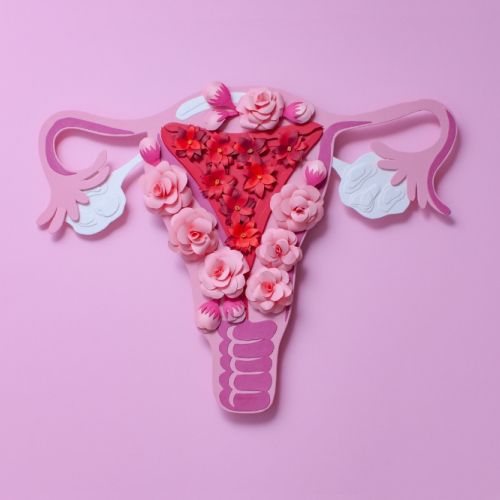Myths and Facts About Male Infertility

About 15% of couples have trouble conceiving. Male infertility plays a role in about 50% of these cases. Sometimes it’s the man and the woman who have infertility problems and sometimes it’s just the man.
At California Center for Reproductive Health, our specialists want to help you overcome fertility problems and grow your family. It’s important to us that you understand the nature of your infertility so you can take productive steps.
Knowing the myths and facts about male infertility helps you make smart choices. Being empowered with knowledge helps you make productive lifestyle changes and accept appropriate treatments to help you get the family you desire. Plus, you won’t waste your time and resentment on factors that are insignificant. Here’s what we want you to know about male infertility.
MYTH: A man’s fertility isn’t affected by age
TRUTH: Male fertility declines with age
Men do continue to produce sperm until death, but the quality and quantity of that sperm decreases as a man ages. When a man reaches the age of 35-40, the health of his sperm starts to decline. Beginning at 39, men’s fertility declines by about 23% each year.
Fertility declines can show up as:
- Poor sperm quality, including shape and motility
- Poor sperm concentration
- Low sperm counts
These factors affect pregnancy rates, the time it takes to conceive, miscarriage risk, and the baby’s health.
While it is possible for older men to father children, it’s not easy.
MYTH: Men don’t have to change their lifestyle to improve fertility
TRUTH: A man’s lifestyle matters to his fertility
When a woman is trying to conceive, she is encouraged to eat a healthy diet, to be physically active, to stop smoking, and quit drinking. These factors can negatively affect her fertility.
A man’s lifestyle also matters to the ability to conceive. Men who smoke have decreased sperm quality, lower sperm counts, and higher numbers of abnormally shaped sperm. Smoking also negatively affects the sperm’s motility.
Diet, sleep, and stress also affect sperm health and quality. So, as part of your fertility plan, we can help you transition to a more healthy lifestyle.
MYTH: Semen analysis gives answers about your fertility
FACT: Semen analysis is one part of your fertility workup
One of the first steps in determining why you and your partner are struggling to get pregnant is a semen analysis. While this test can reveal important factors, like the basic assessment of your semen volume along with sperm count, motility, concentration, and shape. But, a semen analysis can’t tell you that you’re infertile.
Men with poor semen analysis have been able to produce a natural pregnancy. It may take slightly longer, but some research concludes that there is “no clear relationship between the probability of conception and either the proportion of motile sperm or semen volume.”
Factors in your semen analysis can be changed, too, with lifestyle changes like quitting smoking, improving your diet, or taking certain supplements.
MYTH: If a man is diagnosed with infertility, you need a sperm donor
FACT: Male infertility can often be treated successfully
We offer many treatments for male-factor infertility before recommending a sperm donor. Intrauterine insemination (IUI), is a relatively simple treatment during which a sample of a man’s sperm is inserted directly into the uterus. This gives a couple a better chance of fertilization.
In vitro fertilization, or IVF, is another option to address male-factor infertility. During this procedure, we use a sample of sperm to fertilize an egg in a lab to create an embryo.
Other possible treatments include surgery or procedures to directly retrieve sperm from the testicles.
If you’re struggling with infertility, call one of our California Center for Reproductive Health offices in Encino, Valencia, or West Hollywood, or reach out via this website. We help men and women who want to optimize their fertility.
Eliran Mor, MD
Reproductive Endocrinologist located in Encino, Valencia & West Hollywood, CA
FAQ
What does a reproductive endocrinologist and infertility specialist do?
Reproductive endocrinology and Infertility is a sub-specialty of Obstetrics and Gynecology. In addition to managing medical and surgical treatment of disorders of the female reproductive tract, reproductive endocrinologist and infertility (REI) specialists undergo additional years of training to provide fertility treatments using assisted reproductive technology (ART) such as in vitro fertilization.
Reproductive endocrinologists receive board certification by the American Board of Obstetrics and Gynecology in both Obstetrics and Gynecology and Reproductive Endocrinology and Infertility.
When should I see an REI specialist?
In general, patients should consider consulting with an REI specialist after one year of trying unsuccessfully to achieve pregnancy. The chance of conceiving every month is around 20%, therefore after a full year of trying approximately 15% of couples will still not have achieved a pregnancy.
However, if a woman is over the age of 35 it would be reasonable to see a fertility specialist earlier, typically after 6 months of trying.
Other candidates to seek earlier treatment are women who have irregular menses, endometriosis, fibroids, polycystic ovary syndrome (PCOS), women who have had 2 or more miscarriages, or problems with the fallopian tubes (prior ectopic pregnancy).
What are the reasons we are having trouble conceiving?
Approximately 1/3 of the time cause for infertility is a female factor, 1/3 of the time a male factor, and the remaining 1/3 a couples’ factor.
At CCRH, we emphasize the importance of establishing a correct diagnosis. Both partners undergo a comprehensive evaluation including a medical history and physical exam.
Furthremore, the woman’s ovarian reserve is assessed with a pelvic ultrasound and a hormonal profile. A hysterosalpingogram (HSG) will confirm fallopian tube patency and the uterine cavity is free of intracavitary lesions. A semen analysis is also obtained to evaluate for concentration, motility, and morphology of the sperm.
Additional work up is then individualized to direct the best possible treatment option for each couple.
What is IVF? What is the process like?
In vitro fertilization (IVF) is the process that involves fertilization of an egg outside of a woman’s body.
The process starts with fertility drugs prescribed to help stimulate egg development. In your natural cycle, your body is only able to grow one dominant egg, but with stimulation medication we can recruit multiple eggs to continue to grow. After about 8-10 days of stimulation, the eggs are surgically retrieved and then fertilized with sperm in a specialized laboratory. Fertilized eggs are then cultured under a strictly controlled environment within specialized incubators in the IVF laboratory for 3-5 days while they develop as embryos. Finally, embryos (or an embryo) are transferred into the uterine cavity for implantation.
Should I have IVF?
Before deciding if IVF is the right choice, it’s important to sit down with an REI specialist to discuss available treatment options. For some people, other methods such as fertility drugs, intrauterine insemination (IUI) may be the best first choice treatment. At CCRH, we believe each individual couple is unique and not everyone needs IVF.
Is the IVF procedure painful?
While not painful, the fertility medications may some side effects including headaches, hot flashes, mood swings, and bloating. The injection sites may also bruise.
Will IVF guarantee a baby?
Unfortunately, no. Many people think once they start IVF it’s a matter of time that they will be pregnant and have a baby. But according to national statistics per the Society of Assisted Reproduction (SART), on average 40% of assisted reproduction cycles achieve live births in women under age 35. The chances of success then continue to decrease with advancing age.
At CCRH, we employ only evidence-based interventions to ensure patient safety and optimal outcome. While we cannot guarantee a baby, we guarantee that you will receive the best, most advanced, personalized care to help you maximize your chance of a baby.
What is the success rate for IVF?
The average IVF success rate (success measured in live birth rate) using one’s own eggs begins to drop around age 35 and then rapidly after age 40. This is due to the decline in egg quantity and egg quality as a woman ages.
Our clinic’s success rate consistently beats the national average year after year.
Do insurance plans cover infertility treatment? How much does IVF cost?
Individual insurance plans often do not have any coverage for infertility treatments. If you have a group plan, you can call members services to see if they have coverage for infertility (including consultation/workup and IVF).
After your consultation with our REI specialist, one of our dedicated account managers with sit with you to go over the cost of treatment.




